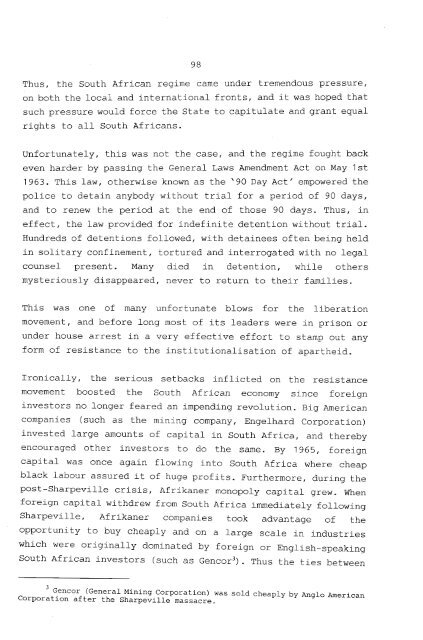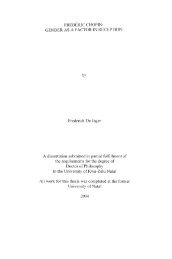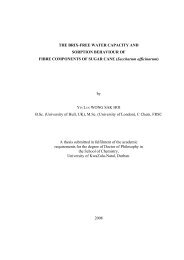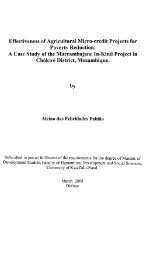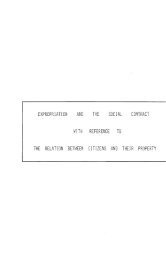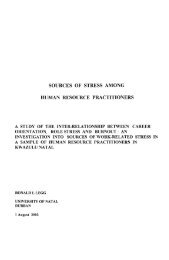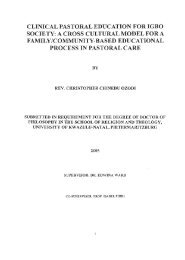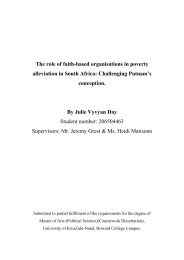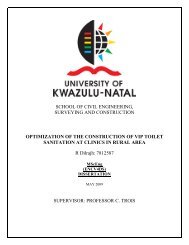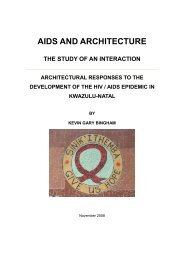FROM ROCK 'N 'ROLL TO HARD CORE PUNK - UKZN ...
FROM ROCK 'N 'ROLL TO HARD CORE PUNK - UKZN ...
FROM ROCK 'N 'ROLL TO HARD CORE PUNK - UKZN ...
You also want an ePaper? Increase the reach of your titles
YUMPU automatically turns print PDFs into web optimized ePapers that Google loves.
98<br />
Thus, the South African regime came under tremendous pressure,<br />
on both the local and international fronts, and it was hoped that<br />
such pressure would force the State to capitulate and grant equal<br />
rights to all South Africans.<br />
Unfortunately, this was not the case, and the regime fought back<br />
even harder by passing the General Laws Amendment Act on May 1st<br />
1963. This law, otherwise known as the '90 Day Act' empowered the<br />
police to detain anybody without trial for a period of 90 days,<br />
and to renew the period at the end of those 90 days. Thus, in<br />
effect, the law provided for indefinite detention without trial.<br />
Hundreds of detentions followed, with detainees often being held<br />
in solitary confinement, tortured and interrogated with no legal<br />
counsel present. Many died in detention, while others<br />
mysteriously disappeared, never to return to their families.<br />
This was one of many unfortunate blows for the liberation<br />
movement, and before long most of its leaders were in prison or<br />
under house arrest in a very effective effort to stamp out any<br />
form of resistance to the institutionalisation of apartheid.<br />
Ironically, the serious setbacks inflicted on the resistance<br />
movement boosted the South African economy since foreign<br />
investors no longer feared an impending revolution. Big American<br />
companies (such as the mining company, Engelhard Corporation)<br />
invested large amounts of capital in South Africa, and thereby<br />
encouraged other investors to do the same. By 1965, foreign<br />
capital was once again flowing into South Africa where cheap<br />
black labour assured it of huge profits. Furthermore, during the<br />
post-Sharpeville crisis, Afrikaner monopoly capital grew. When<br />
foreign capital withdrew from South Africa immediately following<br />
Sharpeville, Afrikaner companies took advantage of the<br />
opportunity to buy cheaply and on a large scale in industries<br />
which were originally dominated by foreign or English-speaking<br />
South African investors (such as Gencor 3 ). Thus the ties between<br />
3 Gencor (General Mining Corporation) was sold cheaply by Anglo American<br />
Corporation after the Sharpeville massacre.


